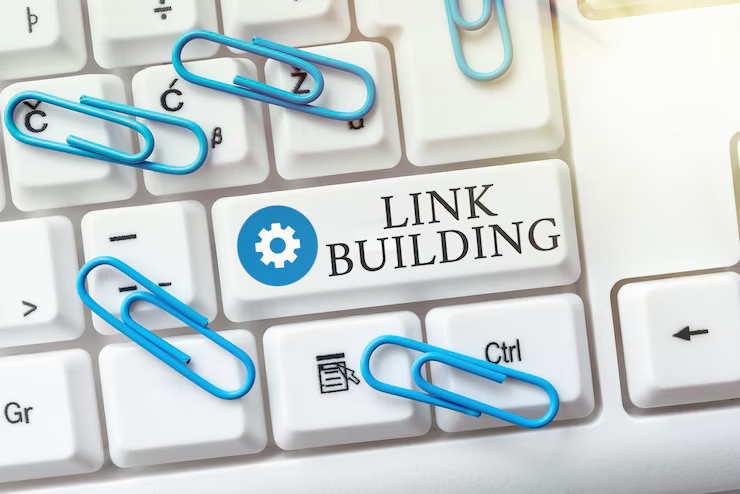When it comes to e-commerce, the market is so competitive that standing out from the crowd becomes a daunting task. Link building is one the most effective ways to improve your online presence and send more traffic back to your store. When you gain quality backlinks, your search rankings will go up and it can help in building brand authority which leads to more sales in the long-run.
Understanding the Importance of Ecommerce Link Building
Building backlinks, or in other words – getting incoming links from different websites to your ecommerce store. Backlinks are looked at by Google as a vote of confidence that your site is considered to be useful and trustworthy. Your website is more likely to rank highly in search results with the best backlinks.
Why is Link Building Important for Ecommerce?
- Improved Search Rankings: Google and other search engines use backlinks as one of the factors for ranking websites on their search directories. More high-quality backlinks will ensure that your website ranks higher on SERPs. Hence leading to increased traffic as well as potential purchases.
- Increased Traffic: Top backlinks can pass direct referral traffic to your site. When trusted sites link to your content, their audience is more likely to read through it and check out what you offer.
- Enhanced Authority: Authoritative-site backlinks boost your credibility. This not only goes up your search rankings, but it also helps gain the potential consumer trust.
Core Ecommerce Link Building Strategies
Here are some effective link building strategies for ecommerce businesses:
Content Creation and Marketing:
- Create Valuable Content: Research and create targeted content that answers the questions your audience are wanting answers to. This may include blog posts, guidelines of products and tutorials and info-graphics.
- Develop Linkable Assets: Produce content that will inherently acquire backlinks. This includes things like leading study and information-supported reports or interactive tools.
- Content Sharing: Post your content to social media. As well as relevant online forums and industry-specific sites where your audience can see it.
Influencer Marketing & Partnerships:
- Influencers: Work with industry influencers who can help you to promote your products or services.
- Influencer Marketing: Send products for influencers to review and get a clean link.
- Giveaways and Contests: Run influencer-partnered giveaways or contest for hype creation + link earning.
Guest Posting:
- Find Quality Blogs: Identify blogs and websites in your industry that allow guest blogging.
- Write High-Value Content: Write guest posts that are informative and captivating to the audience.
- Call to Action Link: Now, VERY NATURALLY, incorporate a link back to your ecommerce store within the guest post.
Broken Link Building:
- Discover Broken Links: Using tools, search for broken connections on highly respected sites within your area of operation.
- Replace the Broken Links: Get in touch with the owner of any found broken link to suggest your relevant articles as replacements.
Local SEO and Citations:
- Repair Your Business Listings: Confirm that data posted about your business is correct. It should also correspond with what has been shared elsewhere across the web
- Get Reviews: Ask your customers to share their experience on Google My Business.
- Develop Local Partnerships: Work with local companies. This is for mutual promotion and backlink exchange opportunities.
Public Relations (PR):
- Press Releases: Distribute press releases. These can be about new product launches, company milestones, or industry news.
- Media Outreach: Build relationships with journalists and bloggers. This is to secure media coverage and backlinks.
- Awards and Recognition: Participate in industry awards and competitions. This is to generate media attention and backlinks.
Measuring and Analyzing Link Building Efforts
These are the key metrics to track when measuring the effectiveness of your link building campaigns:
- Backlink Growth: Monitor how many backlinks you gain over time.
- Domain Authority: The general indicator of the authority your site possesses.
- SEO: Track the position of your website for specific keywords in search engine results
- Traffic and Conversions: Analyze the effects of link building on website traffic and conversion rates.
The Role of Ecommerce SEO Services
It will take some time, professional skills, and resources to get high-quality backlinks. Ecommerce SEO services are here to help in case you don’t have such capacities. These are experts who will develop for you. They will also implement an all-inclusive link building plan optimized for your business objectives.
How to Avoid Common Link Building Failure
While link building is one of the keys to ecommerce success we want to steer away from strategies that could damage your online stores reputation and search engine rankings. Do stay away from things like black-hat link building, such as buying links or participating in link schemes – and avoid keyword stuffing. Emphasise organic link building, and promote ethical actions for longevity.
Conclusion
Developing a comprehensive link building plan and drawing on the knowledge of e-Commerce SEO services can do a lot to increase your prominence online, get more customers coming in, and take your online business to the next level in a way that allows for continuous growth.
If you want to guarantee improvement in your SEO, consider employing the help of AO Creatives. We’re great at what we do and provide maximum support and customer satisfaction. So what’re you waiting for? Contact us now and get started on your journey to online success!

